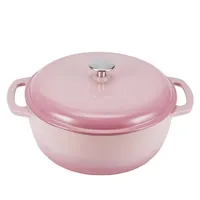Cast iron skillet vs Dutch oven — which is better?
Choose the right cookware
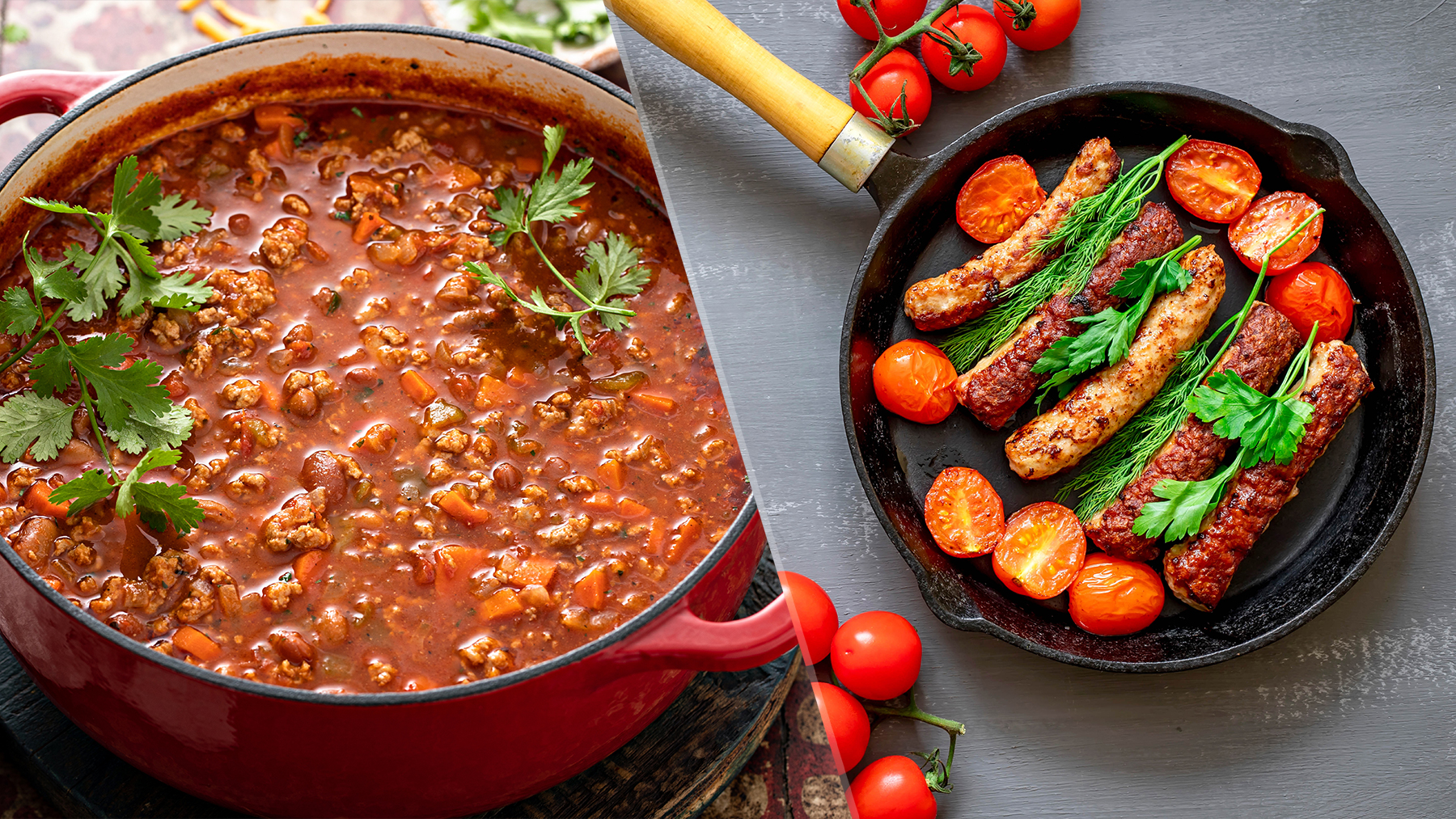
A cast iron skillet and a Dutch oven are two indispensable kitchen cookware items, but what is the difference between the two, and is one better?
A cast iron skillet is popular for its excellent heat-retentive properties, making it a good option for searing meat and serving up a juicy steak. While a cast iron skillet usually has an uncoated finish and resembles more of a frying pan, a Dutch oven often has an enameled coating and comes with a lid.
Choosing which one to buy ultimately depends on your preferred cooking method and the food you want to cook, so here we set out the strengths and weaknesses of each.
Quick and fast or slow and steady
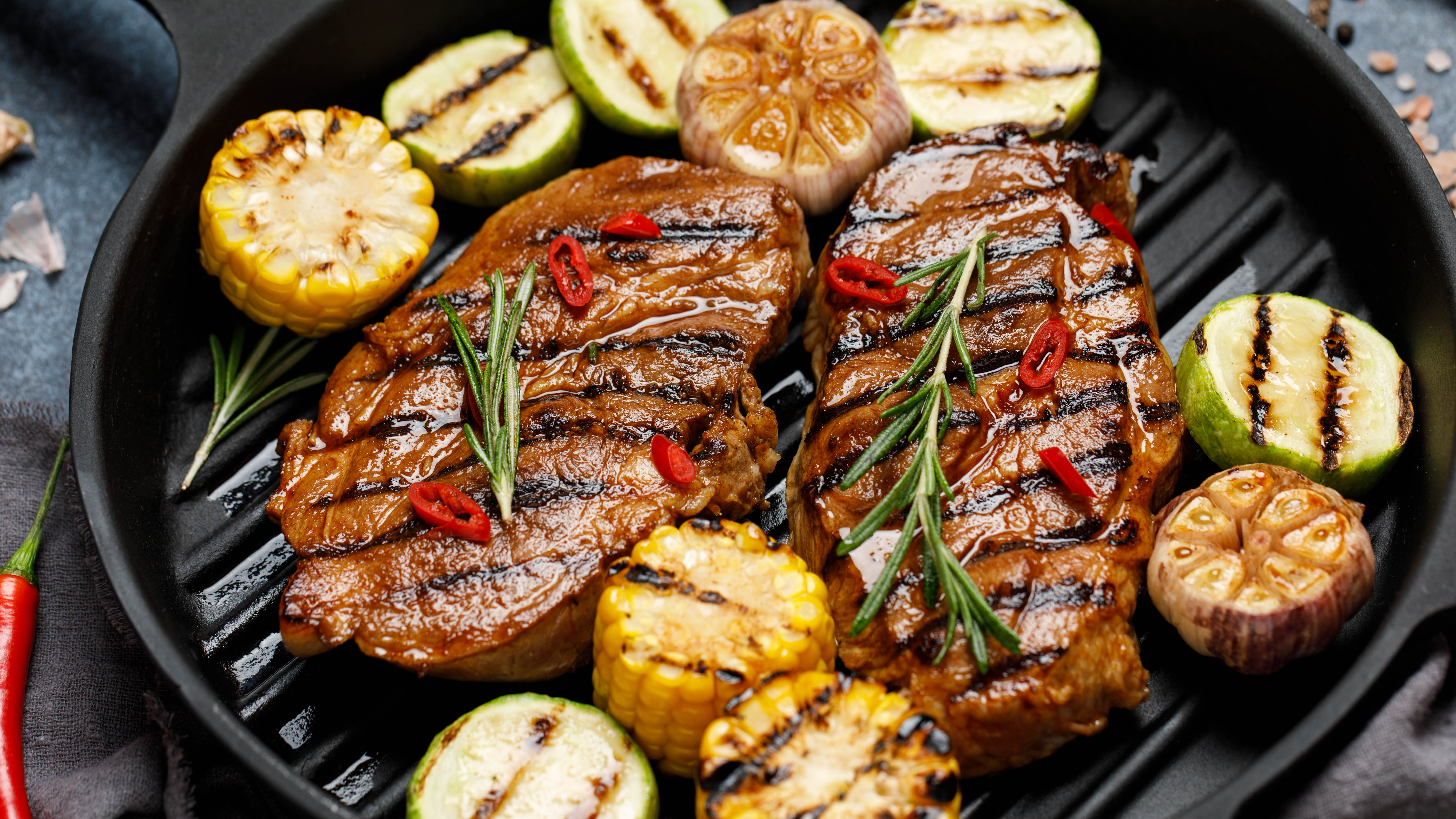
Think of a cast iron skillet as a sprinter and a Dutch oven as a marathon runner. One of the best cast iron skillets will heat up super fast, searing meat quickly without drying it out. Although a Dutch oven has the same heat-retentive properties as a cast iron skillet, its tightly sealed lid makes it ideal for slow cooking — sealing in moisture, flavor and all the nutrients. It’s perfect for braising and stewing meat, which requires a slow, gentle heat to become tender.
Think of a cast iron skillet as a sprinter and a Dutch oven as a marathon runner.
Versatility
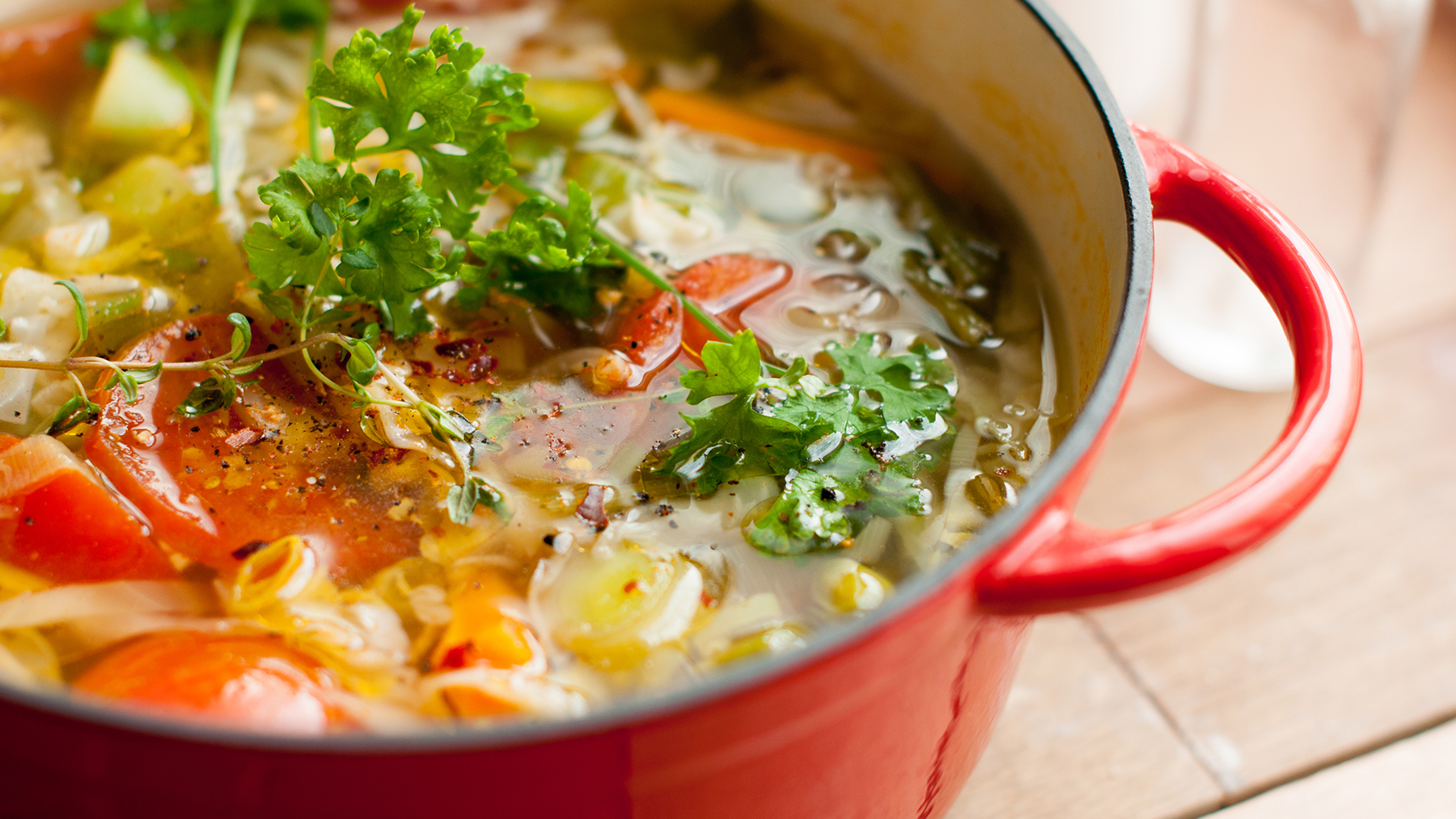
Both a cast iron skillet and a Dutch oven are versatile pieces of cookware. You can use a skillet on the stovetop to sear meat and then place it in the oven to cook through. And it's low sides make it easy to flip food and move it around. It will also often have two lips on opposite sides, making it easy to pour off unwanted juices.
A Dutch oven is equally versatile. It's high sides make it suitable for batch cooking, with the benefit of a lid which holds in moisture and flavor. I often use mine on the stove to cook bolognese sauce and to sear meat and vegetables, before placing a casserole in the oven. And, you'll find out below how I've even used my Dutch oven to bake bread!
Rise to the challenge
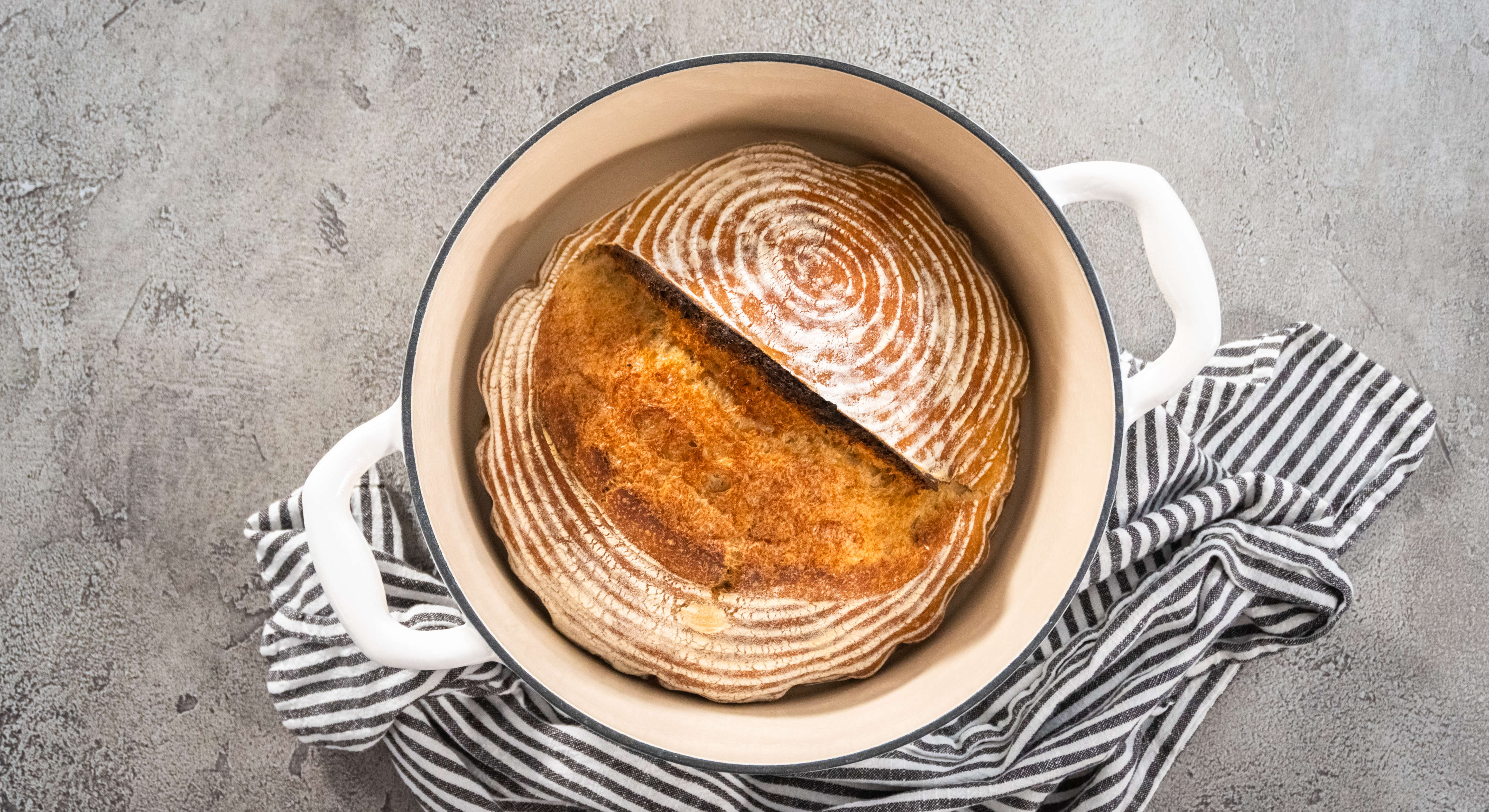
One of the joys of using a Dutch oven is that it’s perfect for baking bread. Although I’d never baked a loaf in a Dutch oven before, I recently reviewed Amazon’s Basic Dutch oven and had a go at baking an easy no knead bread in a Dutch oven. I was pleasantly surprised at the result — a delicious bake with a golden brown crust.
Get instant access to breaking news, the hottest reviews, great deals and helpful tips.
As a keen bread maker, I was surprised at the texture of an unkneaded loaf cooked in a lidded pot. In fact, the addition of the lid results in a crusty loaf as it helps to retain the steam.
It’s all in the seasoning
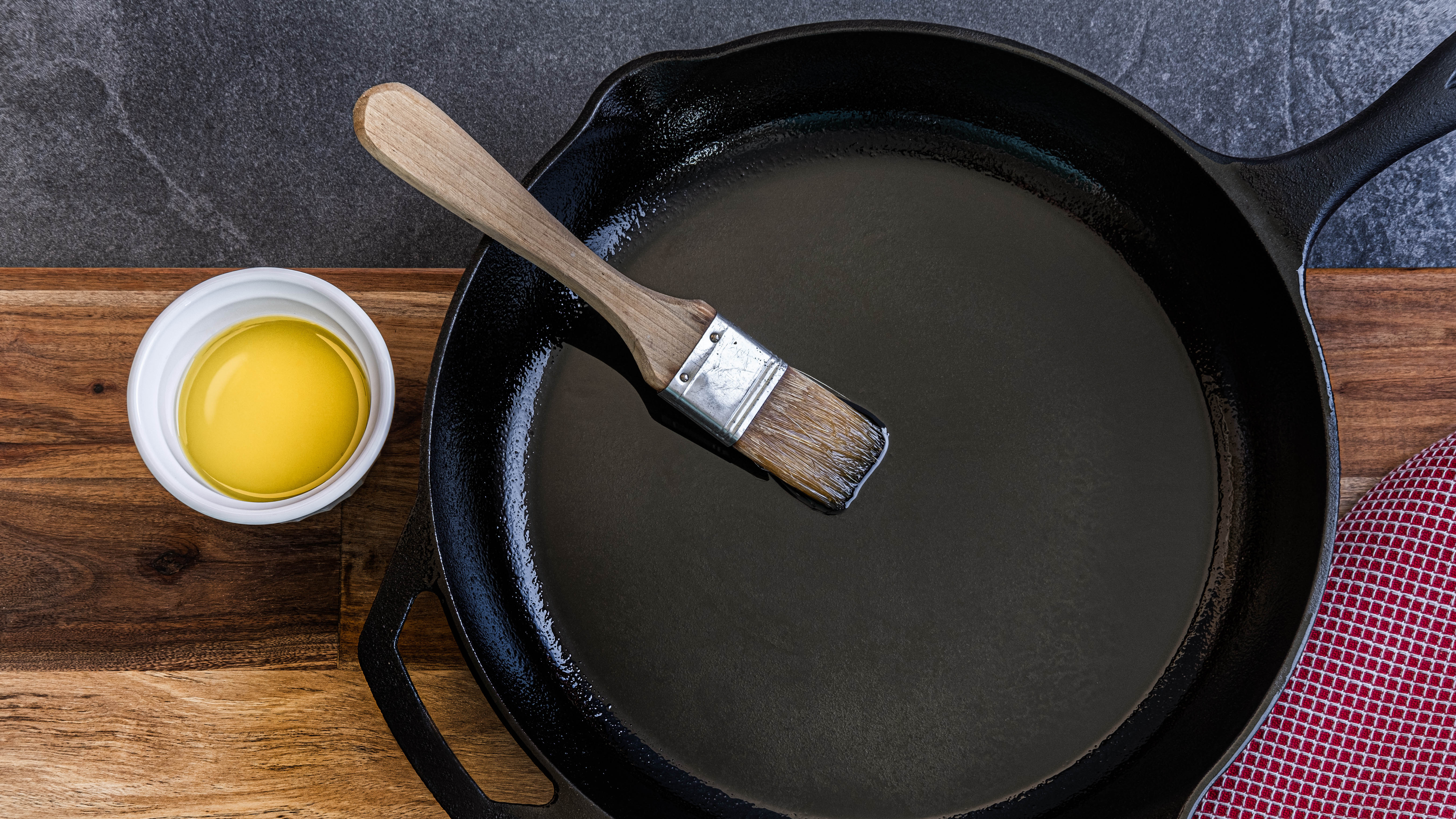
Cast iron skillets are a combination of iron alloys and require ‘seasoning’. This process protects the skillet against rust and creates a non-stick surface. However, enameled cast iron, used for Dutch ovens, is coated in a vitreous enamel glaze. This special coating prevents rusting, which means a Dutch oven doesn’t require seasoning before you use it, unless it is raw cast-iron, like this Lodge Dutch Oven, ($53, Amazon).
If time is precious, you may prefer to opt for a Dutch oven over a cast iron skillet, as you’ll never have to worry about seasoning it. What’s more, forgetting to season your skillet is one of 5 mistakes you could be making with your cast-iron skillet, which could leave you with the tougher job of working out how to clean a cast-iron skillet and remove rust.
How to season a cast-iron skillet
So, how do you season a cast-iron skillet, and how often should you do it? It’s not a difficult process and can be completed in four easy steps. You’ll need to preheat your oven to 400-450°F, coat the skillet in oil, bake it upside down on the center shelf for an hour, and leave it to cool down before removing it.
Your cast iron skillet will now be seasoned and ready to use. To keep it in good condition it will require seasoning about 2-3 times a year.
Amazon Basics Enameled Cast Iron Dutch Oven: $54 @ Amazon
This round 6-Quart Dutch oven is ideal for roasting, baking and sautéing and is suitable for 4-6 people. The heavy duty pan heats evenly and can be used on the stovetop and within the oven to cook a multitude of dishes, from tasty soups to roast chicken. The pot is available in a wide choice of colorways, including pink.
Design features
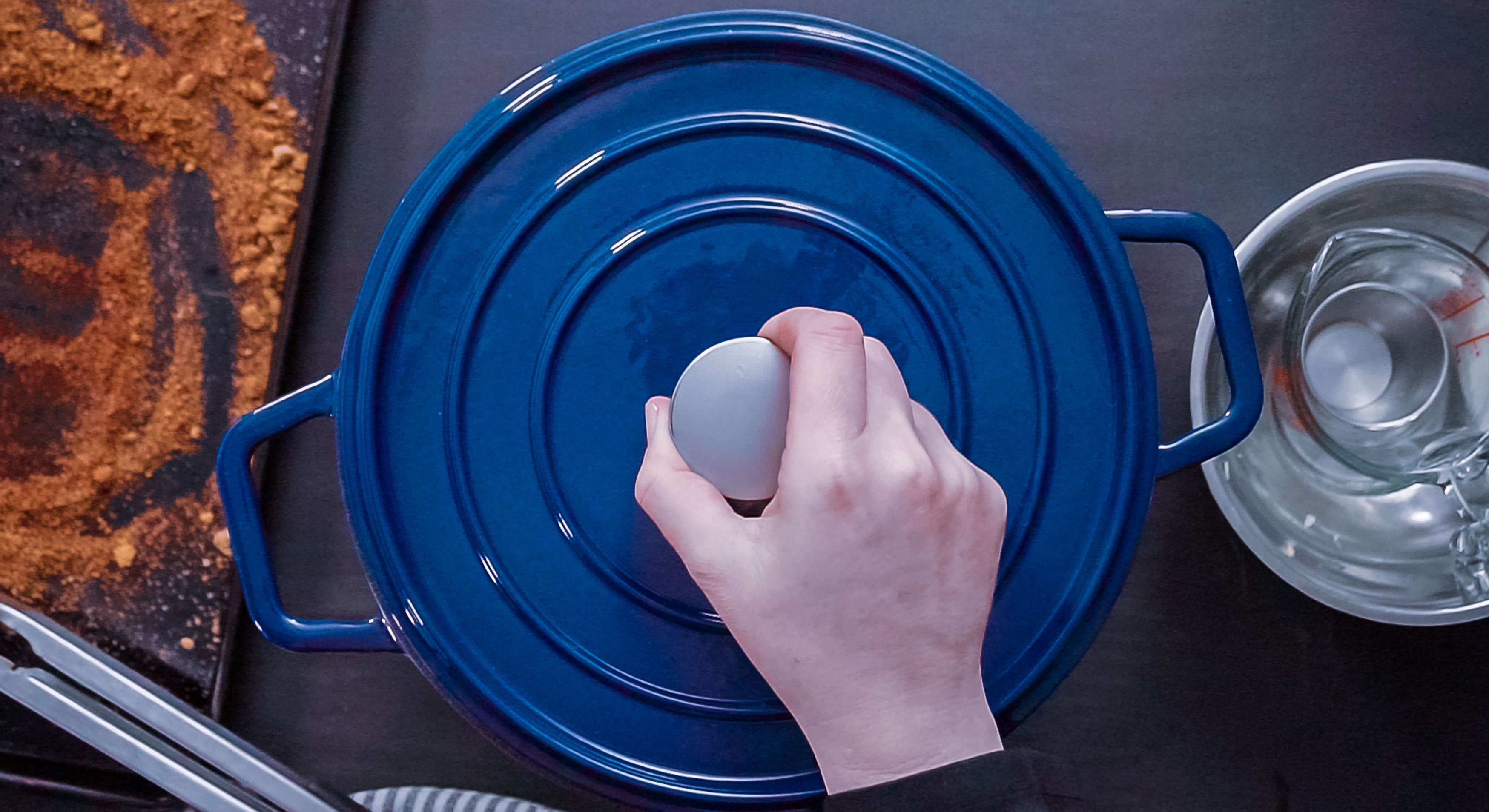
A Dutch oven will win hands up on the design front. Enameled versions are available in a wide array of colors, giving Dutch ovens their distinctive look. A traditional brand we associate with Dutch ovens is Le Creuset.
As a child, I recall seeing bright orange ones sitting on stove tops. Although the bright hues are still available today, the bold colorways have made space for softer tones too. I particularly like Le Creuset’s round Dutch Oven in Sage ($420, Le Creuset), although it does come with a hefty price tag. At the value end of the scale, Crock-pot has an Artisan Non-Stick Cast Iron Round Dutch oven in Dusty Pink/Silver ($63, Wayfair).
Costs vary widely
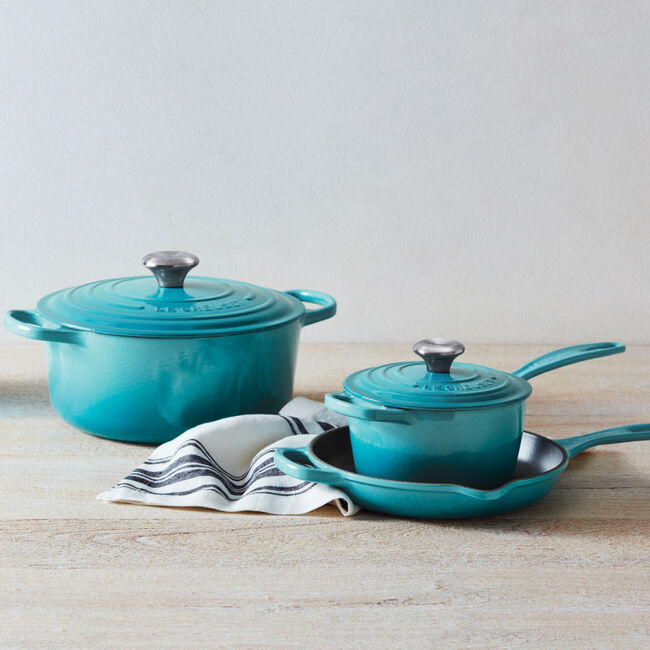
The price range for cast iron skillets and Dutch ovens depends on whether you’re buying a value brand or a big household name, like Staub and Le Creuset. For instance, a 10-inch Lodge cast iron skillet will cost under $27 at Amazon, while a 10-inch Staub skillet costs $139 at Amazon. The wide range of prices is similar for Dutch ovens too. I've also discovered that despite the size being the same, some color-variations of Dutch ovens cost more than others.
So, if you spot one that particularly catches your eye, it might be more expensive than the same version in a different colorway.
| Features | Cast-iron skillet | Dutch oven |
|---|---|---|
| Weight | Heavy | Heavy, plus has a lid |
| Heat retention | Excellent | Excellent |
| Versatility | Searing, frying, grilling, baking | Braising, stewing, baking |
| Maintenance | Requires seasoning before use | No seasoning required |
| Shape | Low side, easy to flip food | High sides, ideal for batch cooking |
| Appearance | Limited design choices | Wide choice of color options, ideal for serveware |
Decision time
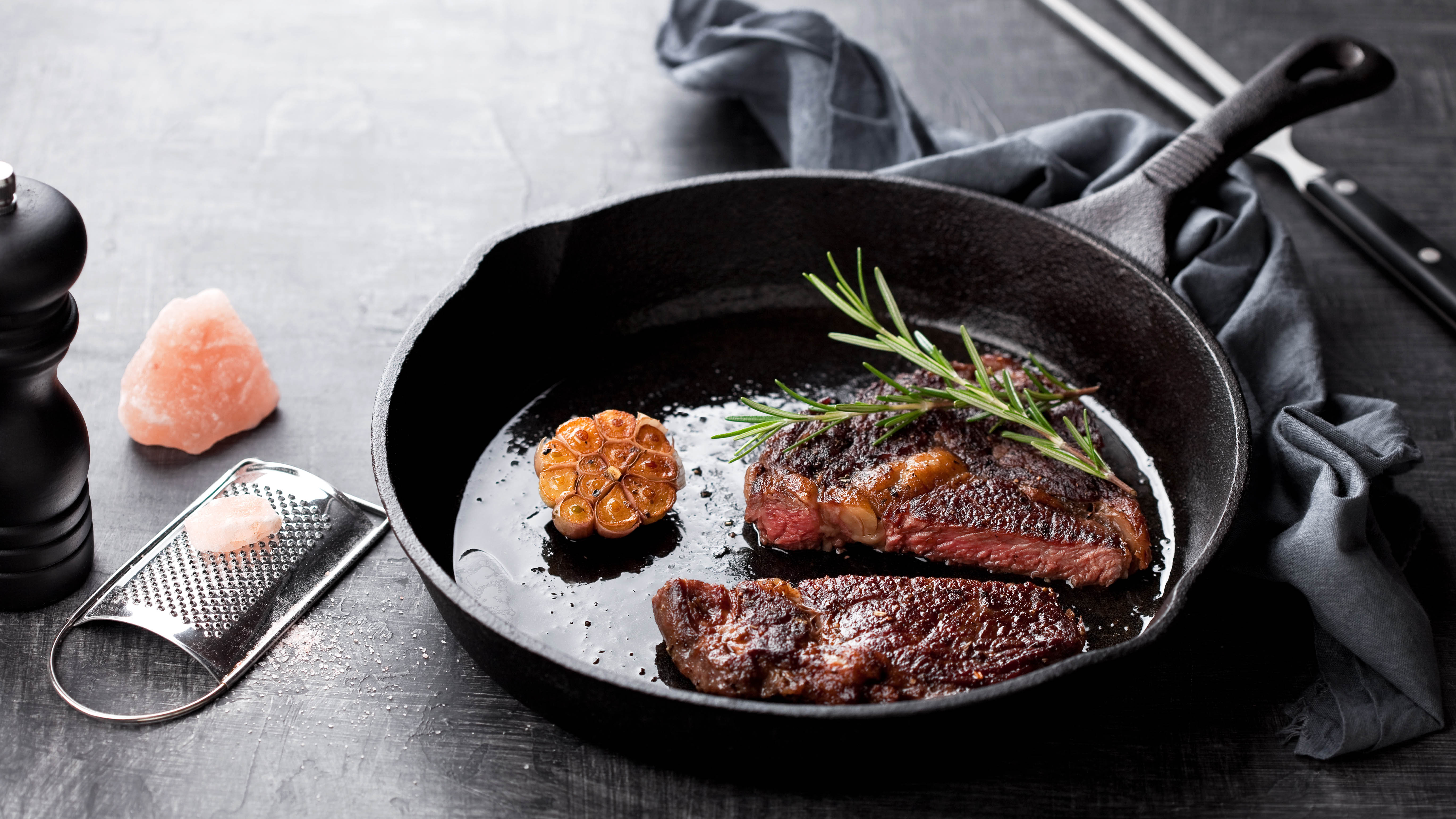
When it comes to deciding whether to buy a cast iron skillet or a Dutch oven, it ultimately depends on how and what you cook. If you prefer a steak to a slow-cooked casserole, you’d be best to go for a cast-iron skillet. However, if you plan ahead and batch-cook, a Dutch oven will give you the capacity to cook and freeze meals for later.
There’s not a significant difference in price between the two, with both having a wide range between the value and premium brands, so there's a good choice, whatever your budget.
And, of course, there is the option to buy one of each. They are both long-term cookware items that will stand the test of time. No matter what you decide, you’ll make a good investment.
More from Tom’s Guide
- Discover 6 foods you should never cook in a cast-iron skillet
- And 7 things you should check when buying a cast-iron skillet
- Plus, 7 space saving ways to organize pots and pans

Camilla is the Homes Staff Writer and covers everything to do with homes and gardens. She has a wealth of editorial experience, mounting over 30 years, and covers news and features, tests products for reviews and compiles buying guides.
Her work has appeared in business and consumer titles, including Ideal Home, Real Homes, House Beautiful, Homebuilding & Renovation, and Kitchen & Bathroom Business. She’s even appeared on the cover of Your Home, writing about her own house renovation.
Although she’s obsessed with decorating her home, she also enjoys baking and trying out the latest kitchen appliances. But when she’s not inside, you’ll find her pottering about in her yard, tending to her vegetable patch or taking in her prized hydrangeas.
